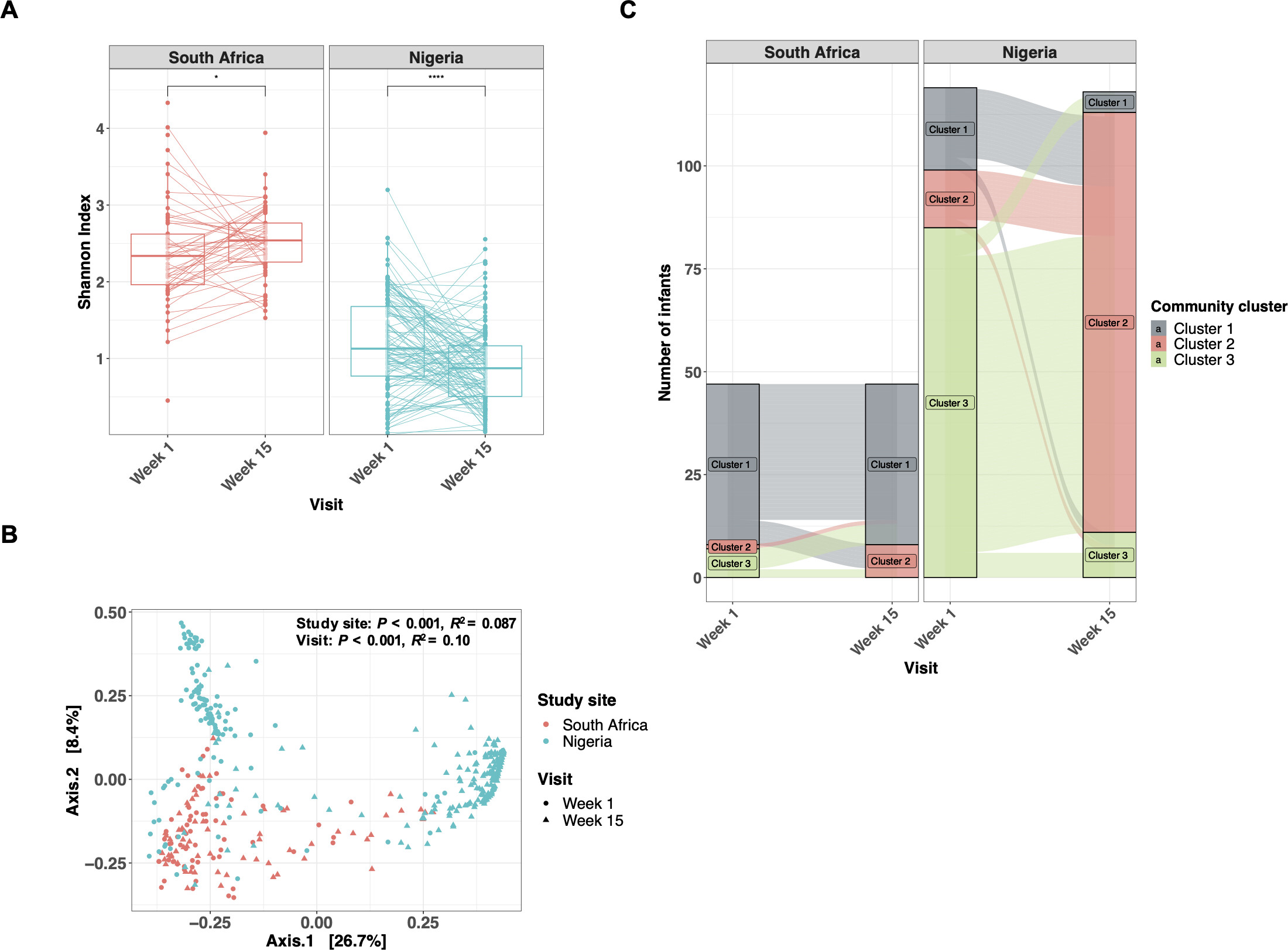💡 This study investigates the influence of HIV exposure on the gut microbiota of infants and its potential association with humoral responses to tetanus toxoid (TT) vaccination. Examining 278 infants from South Africa and Nigeria, with varying HIV exposure statuses, the study utilizes 16S rRNA gene sequencing to characterize gut microbiota at <1 and 15 weeks of life. Anti-tetanus antibodies are measured at corresponding time points. The findings shed light on the complex interplay between HIV exposure, gut microbiota, and vaccine responses in these vulnerable populations.
📍 Key Scientific Findings:
📌 Limited Impact of HIV Exposure on Gut Microbiota: HIV exposure minimally alters infant gut microbiota compared to the strong influences of geographical location and age. Geographical location emerges as a dominant factor shaping initial microbiota seeding and subsequent succession, irrespective of feeding practices and mode of delivery.
📌 Distinct Gut Microbiota Changes in Nigerian Infants: Nigerian infants exhibit drastic changes in gut microbiota over 15 weeks, dominated by 𝘉𝘪𝘧𝘪𝘥𝘰𝘣𝘢𝘤𝘵𝘦𝘳𝘪𝘶𝘮 𝘭𝘰𝘯𝘨𝘶𝘮 subspecies 𝘪𝘯𝘧𝘢𝘯𝘵𝘪𝘴. These changes are not observed to the same extent in South African infants, even among exclusively breastfed infants.
📌 Association of HIV Exposure and Gut Microbiota with Vaccine Responses: Both specific gut microbes and HIV exposure independently predict humoral responses to TT vaccine at 15 weeks. In utero HIV exposure and relative abundance of certain bacterial taxa at week 1 are associated with later TT vaccine responses, particularly in South African infants.
📌 Passive Maternal Antibody Transfer and Vaccine Responses: Nigerian infants exhibit higher anti-tetanus titers at week 1 due to elevated passive maternal antibody transfer, likely from maternal immunization. Despite similar post-vaccination IgG levels, Nigerian infants show an inferior induction of anti-tetanus IgG titers, potentially influenced by inhibitory effects of high passively transferred maternal antibodies.
📌 Influence of Specific Microbes on Vaccine Response: Several bacterial taxa exhibit differential abundance in HIV-exposed uninfected (iHEU) infants compared to unexposed infants (iHUU). 𝘚𝘵𝘳𝘦𝘱𝘵𝘰𝘤𝘰𝘤𝘤𝘶𝘴 𝘴𝘢𝘭𝘪𝘷𝘢𝘳𝘪𝘶𝘴 relative abundance is predictive of improved anti-tetanus IgG titers in both cohorts.
📌 Independent Associations with Vaccine Response: Least Absolute Shrinkage and Selection Operator (LASSO) regression models suggest independent associations of HIV exposure and specific gut microbes with tetanus vaccine responses. The high passive antibody levels in Nigerian infants may mitigate the effects of HIV exposure and microbiota on vaccine response.
📍 This study illuminates the nuanced interactions between HIV exposure, infant gut microbiota, and humoral responses to tetanus toxoid vaccination. While geographical location and age emerge as pivotal influencers of gut microbiota, HIV exposure, and specific microbial compositions independently impact vaccine responses. These findings underscore the complexity of factors influencing infant immunity in the context of HIV exposure, providing crucial insights for future interventions and vaccine strategies in vulnerable populations.
Link to the article : http://tinyurl.com/5n892djc
